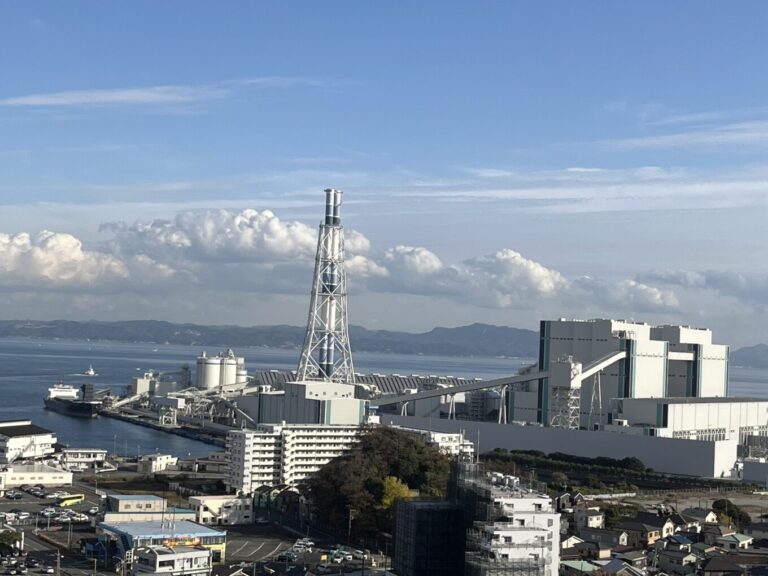In November 2024, JERA, Japan’s largest power generation company, received a recommendation to improve its business operations from the Electricity and Gas Market Surveillance Commission (EGC) under the Ministry of Economy, Trade and Industry (METI) for engaging in market manipulation of the wholesale electricity market in Japan. Environmental NGOs and organizations issued a statement emphasizing the seriousness of raising transaction prices while being aware of the impact. So what’s happened since JERA received the recommendation?
Summary of the Commission’s Business Improvement Recommendation
Despite being aware that it can cause fluctuation in market prices, JERA did not provide part of its surplus electricity on the spot market established by the Japan Electric Power Exchange (JEPX) between April 2019 and October 2023.
Background
November 12, 2024
Based on the provisions of Article 66-12 of the Electricity Business Act, the EGC issued the business improvement recommendation to JERA, requested the establishment of a system to ensure compliance with laws and regulations, and to report by December 12 on measures to prevent recurrence. (METI’s release in Japanese)
December 12, 2024
JERA submitted a report to EGC summarizing measures to prevent recurrence and stating “we had no intention of manipulating the market for profit.” (JERA’s release in Japanese)
December 27, 2024
EGC reviewed JERA’s report on the business improvement recommendation and found that it was insufficient in some areas. EGC requested JERA to clarify the relationship between the reasons for failure and the measures taken, specify the background and details, complete a comprehensive review by March 31, 2025, and clarify short-term and medium-term measures in an additional report. (METI’s release in Japanese)
March 31, 2025
JERA submitted an additional report to EGC on recurrence prevention measures. (JERA’s release in Japanese)
April 9, 2025
EGC announced that it accepted JERA’s additional report. It also stated that it would “continue to focus on confirming and providing guidance on JERA’s response to this matter.”(Electricity and Gas Mrket Surveillance Commision’s release in Japanese)
National regulations require electric power companies to sell all surplus electricity to the wholesale market operated by JEPX. However, JERA has not participated in bidding for surplus electricity for approximately four and a half years, from April 2019 to October 2023, as far as is known. This was determined to constitute market manipulation, specifically the act of withholding sales, which is prohibited under the guidelines (rules) established by the Fair Trade Commission and METI. JERA reported that the issue stemmed from a malfunction in its bidding tool, but it has been reported that employees were aware of the problem as early as 2019 but failed to address it, indicating a clear disregard for compliance.
According to the “summary of the case” presented by the Ministry of Economy, Trade and Industry, if JERA had not committed this manipulation, there could have been an additional 5.4 billion kWh of sales bids between October 2020 and 2023, for the period in which data is available, and that approximately 650 million kWh of those sales bids could have been finalized. It also states that in March 2021, the contract price could have fallen by 50 yen/kWh or more.
ECG has categorically stated that “it is inevitable that criticism will be raised that this could infringe on the interests of consumers in receiving electricity at low prices through competition.”
JERA’s reports have not been made public, and details of the impact on the market also have not been disclosed.However, given the company’s market size, the magnitude of its impact is immeasurable. Nevertheless, according to JEPX’s operational regulations, JERA’s market manipulation, which did not cause damage to the stock exchange itself, does not qualify as grounds for imposing a penalty. If this were a security transaction, the Securities and Exchange Surveillance Commission would order the company to pay a penalty based on the amount of profit gained from the violation.
ECG should also strengthen regulations to enable it to take measures beyond mere business improvement recommendations in cases like JERA’s, which may have caused significant economic losses to small and medium-sized power companies, new power companies, and consumers. This includes requiring the return of income obtained through unfair means and imposing penalties.
ECG has only made an announcement that it received an additional report from JERA and commented that it would “continue to focus on confirming and providing guidance on JERA’s response to this matter.” Despite the need to strengthen regulations to prevent power companies from engaging in misconduct or price manipulation, it is problematic that ECG has limited its response to “continued monitoring and guidance”. Even now, the same kind of misconduct could occur not only at JERA but also at other major power companies, and there are no legal measures in place to punish such misconduct. In fact, power companies have been involved in various misconduct scandals, including the cartel allegations involving Chubu Electric, Kyushu Electric, and Kansai Electric. It is essential to strengthen monitoring functions and make it difficult for misconduct to occur.
Statements/Comments from various organizations
Renewable Energy Institute
Regarding Market Manipulation by JERA
In response to the Electricity and Gas Market Surveillance Commission’s Business Improvement Recommendation (2024/12/5)
Japan Beyond Coal
【News】JERA reprimanded over market manipulation (2024/11/28)

